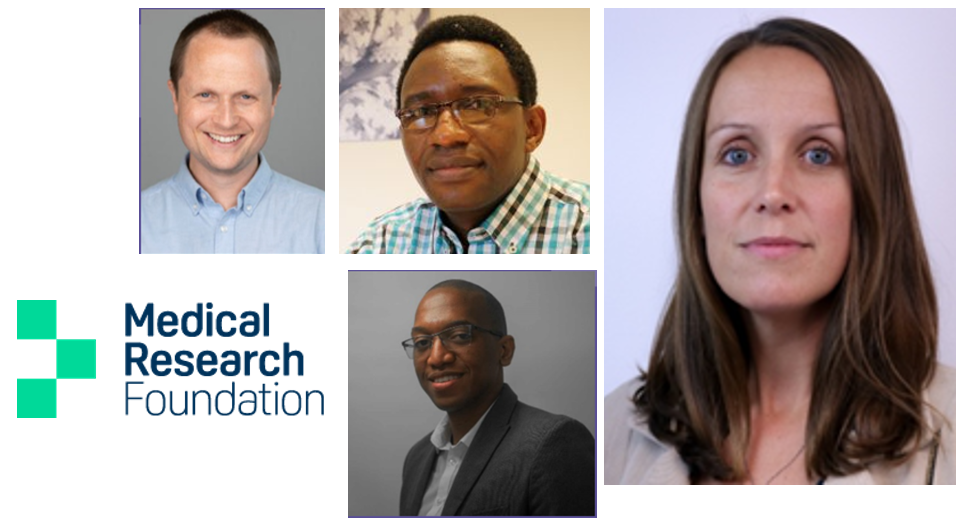
Researchers at LSTM, the Instituto Nacional de Saúde of Mozambique, and the Catholic University of Bukavu of the Democratic Republic of the Congo (DRC) have been awarded the Dorothy Temple Cross International TB Collaboration Grant from the Medical Research Foundation, UK. The award aims to support new, mutually beneficial collaborative projects between mid-career tuberculosis (TB) researchers in the UK and Africa.
TB is an infectious disease caused by a bacterium (Mycobacterium tuberculosis) that spreads in the air, when an infected person coughs, sneezes, or spits. A quarter of the world’s population is infected with TB and nearly 11 million people per year develop symptoms of TB disease. TB is treatable and curable, but treatment typically takes six months and involves four antimicrobial drugs. In areas where access to healthcare and support is difficult, many people go untreated or are unable to complete their treatment. For these reasons, TB is a leading cause of death from an infectious disease.
In 2021, TB deaths increased for the first time in a decade with 1.6 million people dying of TB. This is predominantly driven by restricted healthcare access during the Covid-19 pandemic, which has undone years of progress towards ending TB. Multi-drug resistant TB (MDR-TB), where TB is resistant to at least two key antibiotics – rifampicin and isoniazid - is now an acute global public health emergency and leading cause of death from antimicrobial resistance.
The Dorothy Temple Cross International Collaboration Grants were awarded to two research projects, “User and Provider Acceptability and Feasibility of Video Observed Therapy for Multi-Drug Resistant Tuberculosis in Mozambique
(SAFEST-1 MDR-TB)” and “Elucidating Mycobacterium tuberculosis drug resistance in Eastern Democratic Republic of the Congo by clinical and genotypic characterization (DR-TB DRC)”
SAFEST-MDR-TB-1: The standard-of-care of healthcare centre-based MDR-TB directly observed therapy (DOT) leads to severe out-of-pocket costs and lost income, and cures only 60% of people with MDR-TB globally (WHO Global TB Report 2022). Innovative, person-centred strategies including the use of video-observed therapy (VOT) are urgently required but have limited implementation evidence to date, especially from low-income countries (LICs). VOT uses a smartphone (or other video-compatible equipment) to observe TB patients taking their medications remotely. This could help to ensure that people with TB who are not able to easily get to hospital settings complete their treatment successfully.
Mozambique is a LIC with a high triple burden of TB, MDR-TB, and TB/HIV co-infection. With the rapid national increase in smartphone use, Mozambique’s National TB Program (NTP) considers VOT a potential key intervention to support people with MDR-TB to become cured. Dr Celso Khosa from Instituto Nacional de Saúde, Mozambique, and Dr Tom Wingfield, Senior Clinical Lecturer and co-lead of LIV-TB at LSTM, will generate the first evidence of feasibility and acceptability of VOT for people with MDR-TB in Mozambique, while building capacity, consolidating collaborations, and training the next generation of researchers.
Dr Khosa commented “With the support of the Dorothy Temple Cross Grant from the Medical Research Foundation, we will conduct impactful, high-quality research on MDR-TB while building long term international, multicultural collaborations based on true partnership and respect.”
DR-TB DRC: Diagnosing MDR-TB is a challenge for resource-limited settings, including Eastern DRC, where there is an extremely high burden of TB, but vital information on drug resistance is lacking. This project led by co-awardees Dr Esto Bahizire (Catholic University of Bukavu) and Dr Naomi Walker (LSTM) will investigate MDR-TB in Eastern DRC by culture and whole genome sequencing (WGS) of Mycobacterium tuberculosis isolates from patients with pulmonary TB in South Kivu province, aiming to genetically characterise resistance profiles and investigate the association with patient outcomes. This will enable better understanding MDR-TB in Eastern DRC and may identify novel drug resistance patterns that will have implications for TB treatment, globally. This award will support skills development towards a WGS pipeline in South Kivu and provide a catalyst for future collaboration between UK and Congolese investigators, to reduce death and disability due to TB, worldwide.